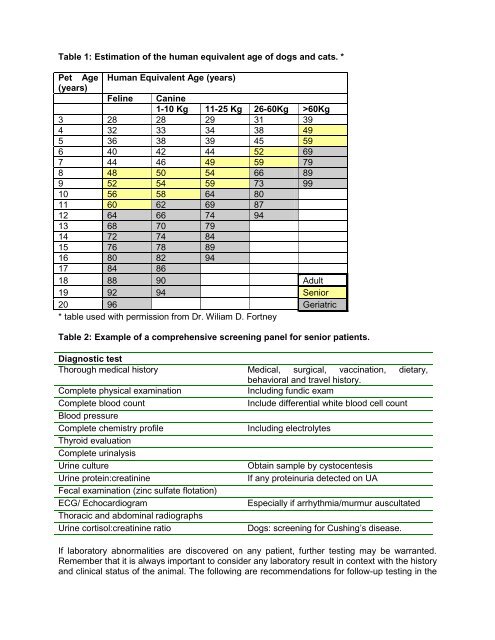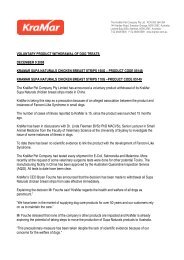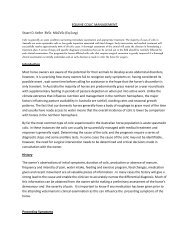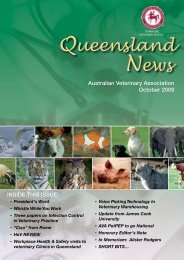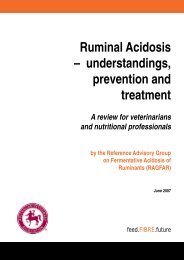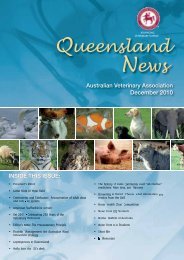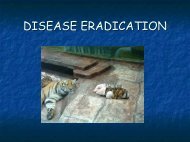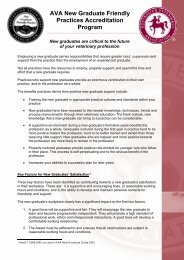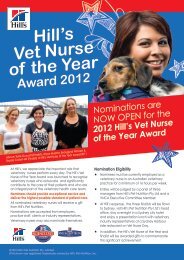Screening and Management Considerations for the Geriatric Dog ...
Screening and Management Considerations for the Geriatric Dog ...
Screening and Management Considerations for the Geriatric Dog ...
Create successful ePaper yourself
Turn your PDF publications into a flip-book with our unique Google optimized e-Paper software.
Table 1: Estimation of <strong>the</strong> human equivalent age of dogs <strong>and</strong> cats. *<br />
Pet Age<br />
(years)<br />
Human Equivalent Age (years)<br />
Feline<br />
Canine<br />
1-10 Kg 11-25 Kg 26-60Kg >60Kg<br />
3 28 28 29 31 39<br />
4 32 33 34 38 49<br />
5 36 38 39 45 59<br />
6 40 42 44 52 69<br />
7 44 46 49 59 79<br />
8 48 50 54 66 89<br />
9 52 54 59 73 99<br />
10 56 58 64 80<br />
11 60 62 69 87<br />
12 64 66 74 94<br />
13 68 70 79<br />
14 72 74 84<br />
15 76 78 89<br />
16 80 82 94<br />
17 84 86<br />
18 88 90 Adult<br />
19 92 94 Senior<br />
20 96 <strong>Geriatric</strong><br />
* table used with permission from Dr. Wiliam D. Fortney<br />
Table 2: Example of a comprehensive screening panel <strong>for</strong> senior patients.<br />
Diagnostic test<br />
Thorough medical history Medical, surgical, vaccination, dietary,<br />
behavioral <strong>and</strong> travel history.<br />
Complete physical examination<br />
Including fundic exam<br />
Complete blood count<br />
Include differential white blood cell count<br />
Blood pressure<br />
Complete chemistry profile<br />
Including electrolytes<br />
Thyroid evaluation<br />
Complete urinalysis<br />
Urine culture<br />
Obtain sample by cystocentesis<br />
Urine protein:creatinine<br />
If any proteinuria detected on UA<br />
Fecal examination (zinc sulfate flotation)<br />
ECG/ Echocardiogram<br />
Especially if arrhythmia/murmur auscultated<br />
Thoracic <strong>and</strong> abdominal radiographs<br />
Urine cortisol:creatinine ratio<br />
<strong>Dog</strong>s: screening <strong>for</strong> Cushing’s disease.<br />
If laboratory abnormalities are discovered on any patient, fur<strong>the</strong>r testing may be warranted.<br />
Remember that it is always important to consider any laboratory result in context with <strong>the</strong> history<br />
<strong>and</strong> clinical status of <strong>the</strong> animal. The following are recommendations <strong>for</strong> follow-up testing in <strong>the</strong>


